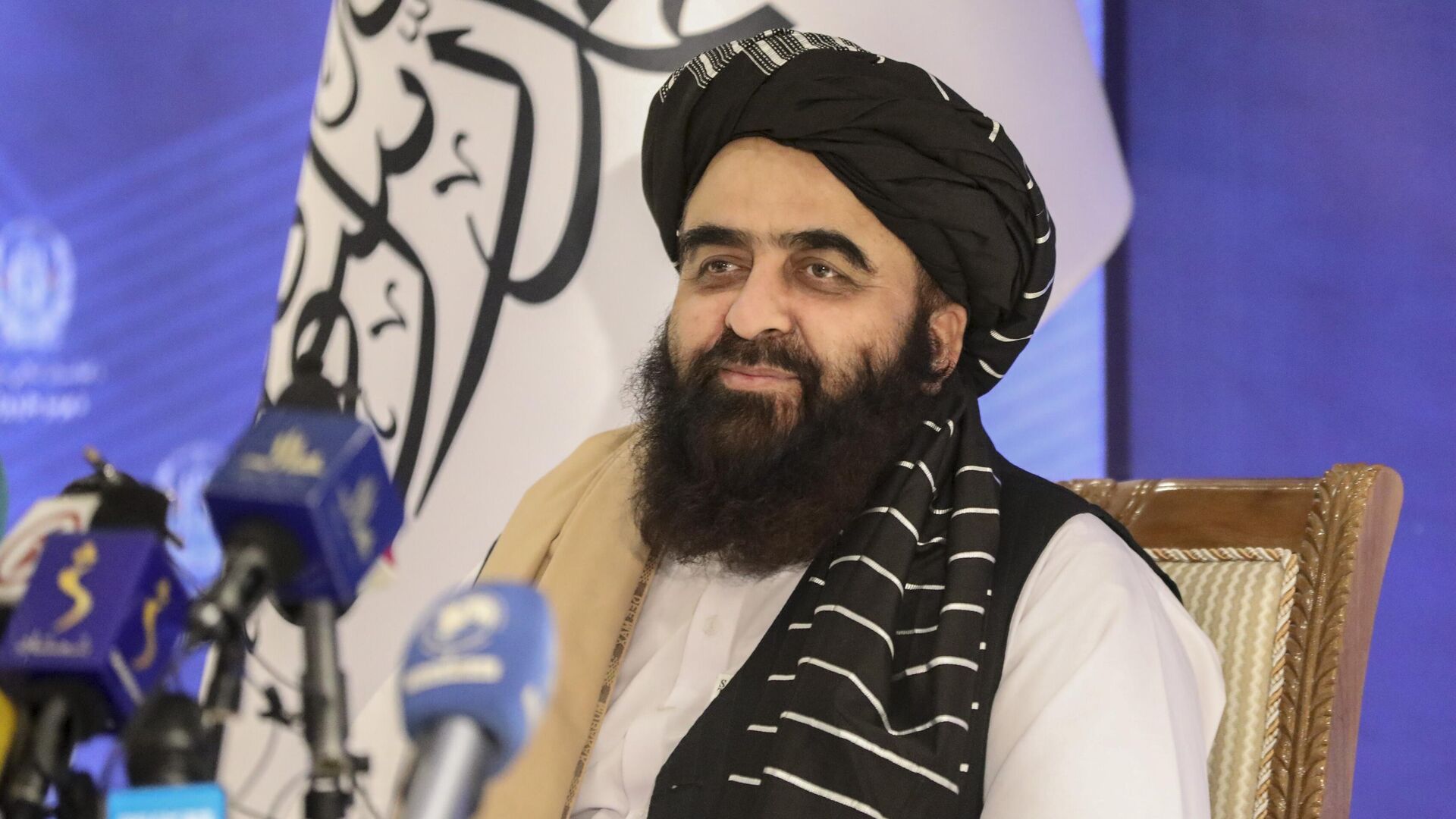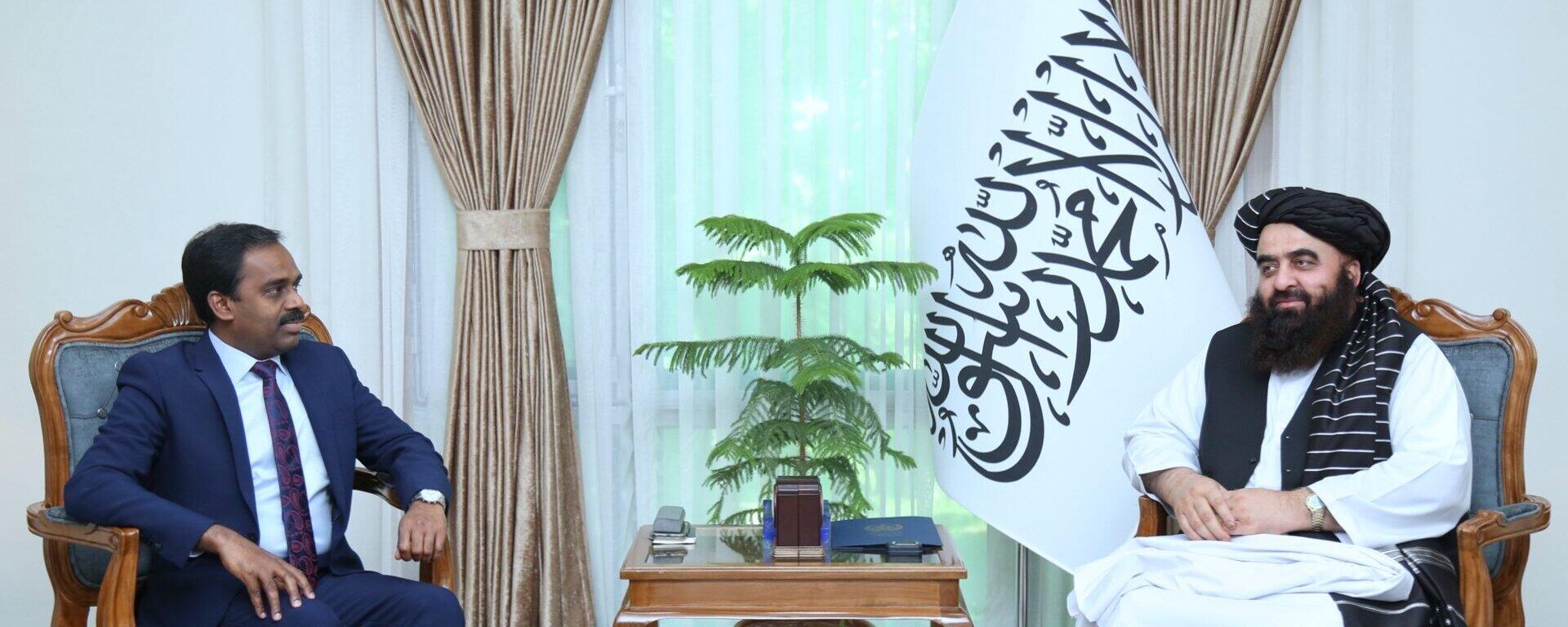Taliban FM’s Visit: A Game-Changer in India-Afghanistan Diplomacy

© AP Photo / AP Photo/Muhammad Farooq
Subscribe
Afghan Foreign Minister Amir Khan Muttaqi is expected to arrive in New Delhi next week, the first visit by a high-ranking Taliban official to India since the hardline Islamic movement stormed back to power in Kabul in 2021.
India's engagement with the Taliban leadership, marked by Foreign Minister Amir Khan Muttaqi's upcoming visit, reflects a delicate balancing act that New Delhi is undertaking after recognising Afghanistan's strategic importance, an expert stated.
India has maintained open channels with Afghanistan's present rulers to address security concerns (read terrorism) and provide humanitarian assistance to the war-torn country, Shreyas Deshmukh, a Research Associate with the National Security Program at Delhi Policy Group (DPG), a think tank in New Delhi, told Sputnik India.
In the last two months, India appears to be opening its doors to Afghans, for example, offering more scholarships to students, reinstating the visa system for people from the Islamic nation, he added.
India has maintained open channels with Afghanistan's present rulers to address security concerns (read terrorism) and provide humanitarian assistance to the war-torn country, Shreyas Deshmukh, a Research Associate with the National Security Program at Delhi Policy Group (DPG), a think tank in New Delhi, told Sputnik India.
In the last two months, India appears to be opening its doors to Afghans, for example, offering more scholarships to students, reinstating the visa system for people from the Islamic nation, he added.
"Things seem to have found another gear after the US announced sanctions on Iran's Chabahar Port, where India has invested millions and which gives New Delhi access to Central Asia, bypassing Pakistan. Since American sanctions on Chabahar also impact Afghanistan, this could be the main topic of discussions between Muttaqi and the Indian leadership," Deshmukh stated.
Although India’s engagement with the Taliban is increasing, the geopolitical expert does not expect an expansion of cooperation beyond projects that were previously halted after the Taliban replaced the Ashraf Ghani government four years ago.
It is worth mentioning that before the Taliban occupied the political chair in Afghanistan, India had committed $3 billion in the country's developmental projects, which included the Salma Dam and the Zaranj-Delaram Highway. Besides, India provided significant support in various sectors like education, agriculture and healthcare in over 500 projects across the length and breadth of Afghanistan.
About 20 of those projects are still unfinished, with the Shahtoot Dam, a $236 million project that will provide drinking water to more than 2 million residents of Kabul, being the most high-profile among them. Additionally, several small and community projects related to healthcare, water management and agriculture remain stalled, and resumption of these projects is one of the key requirements of the Taliban, he said.
About 20 of those projects are still unfinished, with the Shahtoot Dam, a $236 million project that will provide drinking water to more than 2 million residents of Kabul, being the most high-profile among them. Additionally, several small and community projects related to healthcare, water management and agriculture remain stalled, and resumption of these projects is one of the key requirements of the Taliban, he said.
"There is little doubt that Afghanistan is an important player in the region, and with the kind of churning that India's neighbourhood is witnessing, and with Pakistan holding the chair of the United Nations Security Council (UNSC) Sanctions Committee, India could be reshaping its policy towards the Taliban," Deshmukh stressed.
Furthermore, while China has pledged substantial investments in Afghanistan, tangible progress has yet to be seen. Meanwhile, India’s longstanding record of providing grants to Afghanistan remains significant, which is why the Taliban could be courting New Delhi, he concluded.


